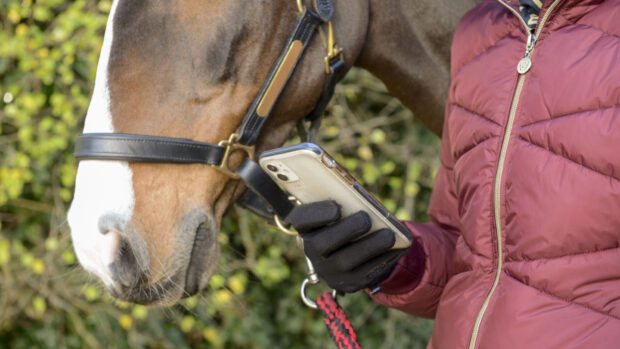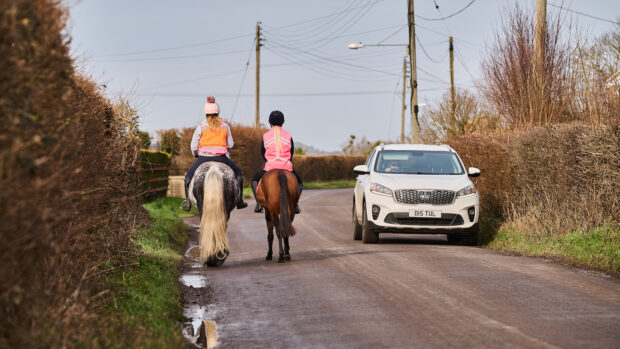Questions have been raised over the laws that apply in buying and selling horses – and whether sellers get the raw end of the deal.
An equine lawyer has told H&H about frustrations from horse traders who believe buyers are using the Consumer Rights Act as a means to return a horse and absolve responsibility for, rather than working through, any issues that may have occurred while a horse is settling into its new home.
Horses are considered “goods” under UK consumer law, and the act states that, as with other goods, a horse sold by a trader to an individual must be fit for its intended purposes, of satisfactory quality and as described. If a horse is not fit for purpose, the buyer has a right to reject it and receive a refund within 30 days.
Hannah Bradley, of Aria Grace Equine Law, told H&H that the law is broadly drafted to suit inanimate objects and although there needs to be protection for buyers who are often investing material sums of money, the reality is that the Consumer Rights Act can “create an uphill burden for professional sellers of horses”.
“The act provides buyers with 30 days to reject goods that are not satisfactory – and having that 30-day limit can create an incentive not to work through any issues and to allow the horse an adjusting period” she said.
“After you go past the 30-day period you are entitled to a repair or replacement. But clearly the terms ‘repair or replacement’ are unsuitable to the sale of horses, in that a trader is unlikely to have a like-for-like replacement. If the repair or replacement is not possible, there exists a final right to receive a refund”.
Ms Bradley said professional sellers should be aware of consumer law, and although this cannot be changed, she recommends they keep evidence to support themselves should issues arise after the sale.
She also recommends having transparent conversations about buyers’ capabilities and experience.
“In these situations the buyer is starting with an advantage in terms of how the law is drafted, but it can be useful for the seller to have evidence should an issue arise,” she said.
“Disclose any quirks or veterinary history in writing and keep a diary of what’s going on with the horses while they are with you. When they are leaving your care, take videos and photos of the horse; around the body, in-hand trotting up, and any lumps or bumps. Things can happen in transit and during the settling-in period, so it’s helpful to have an evidence trail.”
Horse trader Shelley Barrington of Trina’s Cobs told H&H she believes the 30-day timeframe under the Consumer Rights Act sets an unrealistic window for a horse to adapt to its new surroundings.
“If someone is having issues they always get in touch within 30 days. It’s because they are under a timeframe, and more often than not it’s a case of the horse hasn’t settled. If it’s not a settling issue, it’s usually a management problem,” she said.
“In these cases we would give as much advice as possible, recommend that they get a professional on board to help if they are struggling, and eight times out of 10, it works out.”
Ms Barrington added that horses can be labelled as “bad or dangerous”, when all they needed was time.
“People can be so desperate to get a refund that they blame the horse, rather than being honest. If a horse is returned as ‘dangerous’ it develops a bad reputation, when it’s not the case,” she said, adding that buyers need to be honest about their abilities.
“Riding lessons are expensive, so more novice or nervous riders instead are buying cheaper horses. They maybe don’t have the confidence or experience, so if the horse is a little unsettled they’re scared to do anything and just put it in the field, and it just gets worse.”
British Horse Society director of horse care and welfare Gemma Stanford told H&H buying a horse should never be rushed and it is a process that needs “thorough research and consideration of both the horse’s needs and the buyer’s circumstances”.
“It is important to ask detailed questions and take time to ensure the horse is the right fit,” she said, adding that buyers should take a coach to the viewing, and have a pre-purchase examination carried out.
“The use of a clear sale contract is vital to avoid disputes, and the principle of ‘buyer beware’ remains highly relevant. If disputes arise post-purchase, we recommend seeking professional legal advice.”
- To stay up to date with all the breaking news from major shows throughout 2025, subscribe to the Horse & Hound website
You may also be interested in:

Court case over £21,000 deposit highlights need for contracts in horse sales

How to protect yourself when buying or selling horses: legal experts share helpful advice

Subscribe to Horse & Hound magazine today – and enjoy unlimited website access all year round




